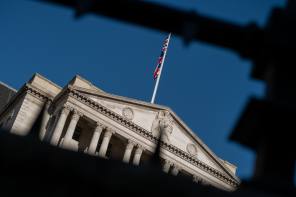

Yes
Philip Milton, chartered wealth manager at Philip J Milton
Low interest rates are great. They encourage borrowing for enterprise, resultant economic growth, and help savers realise that long-term investment is not a deposit at the bank. I have done very well from low rates and pay little on my gearing, and I have seen my assets escalate at the same time.
However, rates have been too low – artificially – and for too long. They are not only used to wield power over economics, but are a force in the stakes of ‘confidence’, and now sterling and UK Plc need to demonstrate we are stronger than some think and that the future is bright, especially post-Brexit.
The Bank of England (BoE) must raise the base rate, gently but perhaps consistently. Perhaps the real rate should be 4 per cent and this should be the longer-term target of sustainable ‘normality’, and for developed nations globally in fact. The longer excessively low rates persist, the longer artificiality in certain real assets’ prices continues and becomes even more out of kilter – especially house prices.
There is one more reason for higher rates – they can be reduced if or when the BoE needs fiscal stimuli in the face of economic problems down the line.
Yes, some might feel pain, but gently over an extended period rather than facing swingeing increases in the face of traumas such as plummeting currency or rampant inflation. Frankly, if you cannot afford an extra 1 or 2 per cent now, there is no escaping that you are overborrowed.
No
Anna Sofat, managing director of Addidi Wealth
For many, ultra-low interest rates are the norm. The last time the base rate went up (from 0.25 per cent to 0.5 per cent) was in November 2017, and even then it was the first increase for a decade. But while there have been recent mutterings that this should change – because of domestic inflationary pressures, but also rising interest rates in the US – I don’t believe any of these are reasons to justify a hike this year.
Not only are rate rises a blunt instrument to curb inflation, it’s my belief inflationary pressure does not actually exist. At present, Brexit is creating a period of great uncertainty. We’re seeing it played out in terms of declining household spend and the impact it’s having on the high street. Less money is the last thing retailers want consumers to have. Confidence needs restoring, and the only way this can happen is if consumers have more money in their pockets.
Some argue recent wage inflation is giving people just this, but the fact is people are leveraged to the hilt. This is especially so among those who own second (buy-to-let) homes. People’s disposable incomes are simply far too low at present to risk it.
And let’s not forget, any interest rate rise to try and curb wage inflation would be an even blunter tool. It would create the double whammy of staff demanding further pay rises to pay their mortgages, while at the same time stripping businesses of their ability to afford to invest.
Right now, businesses need to borrow and consumers need to spend. An interest rate rise would not encourage either.



